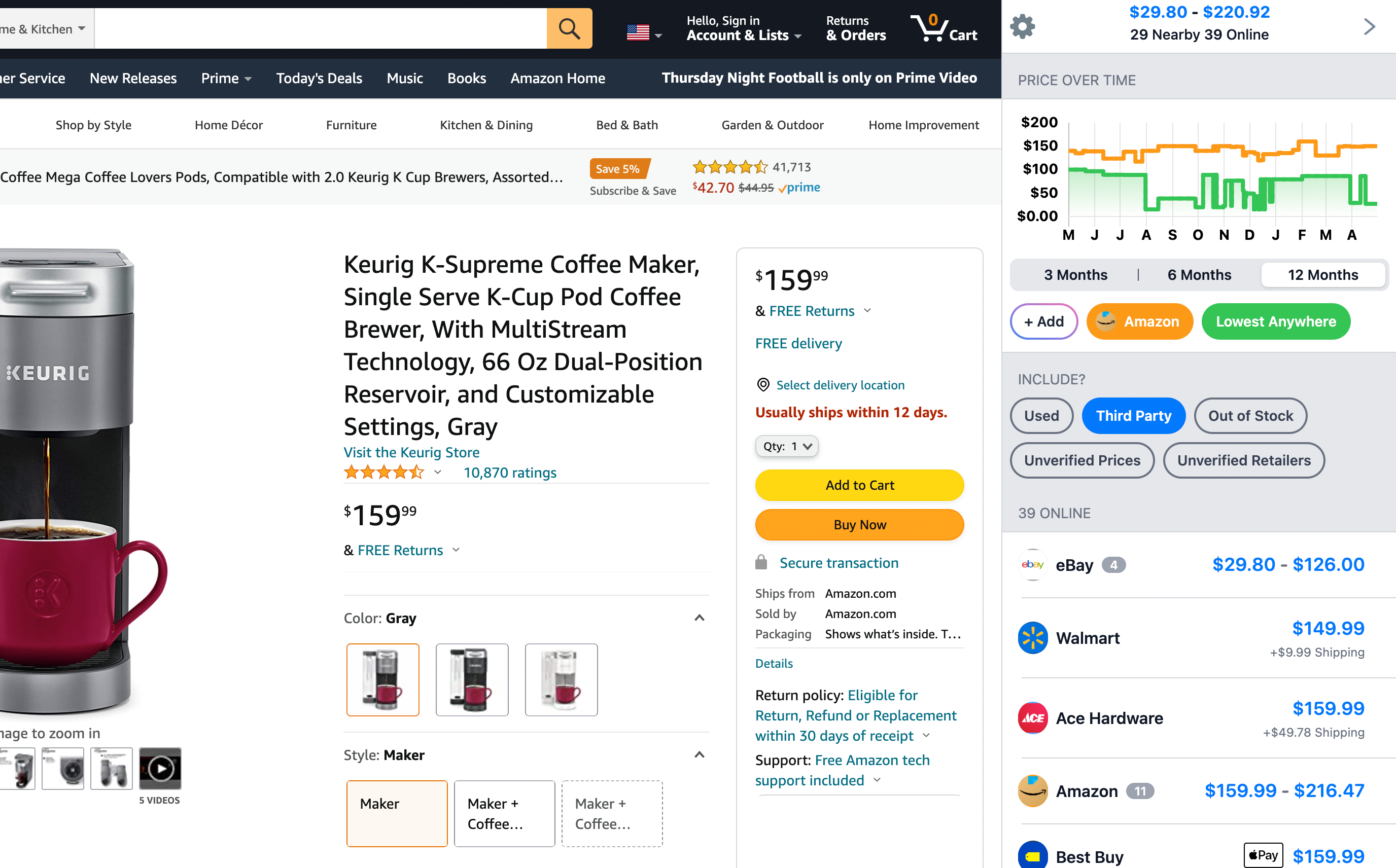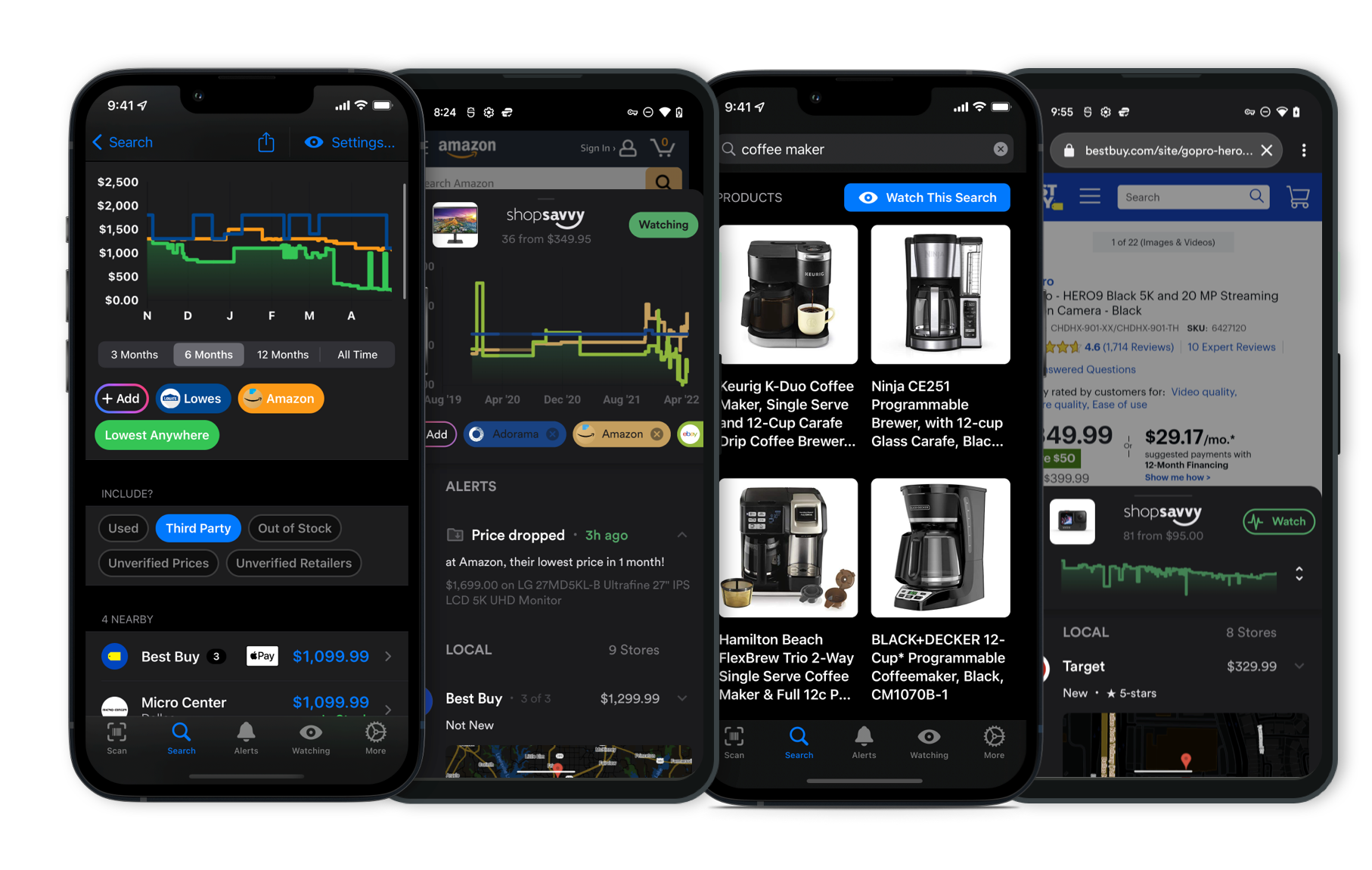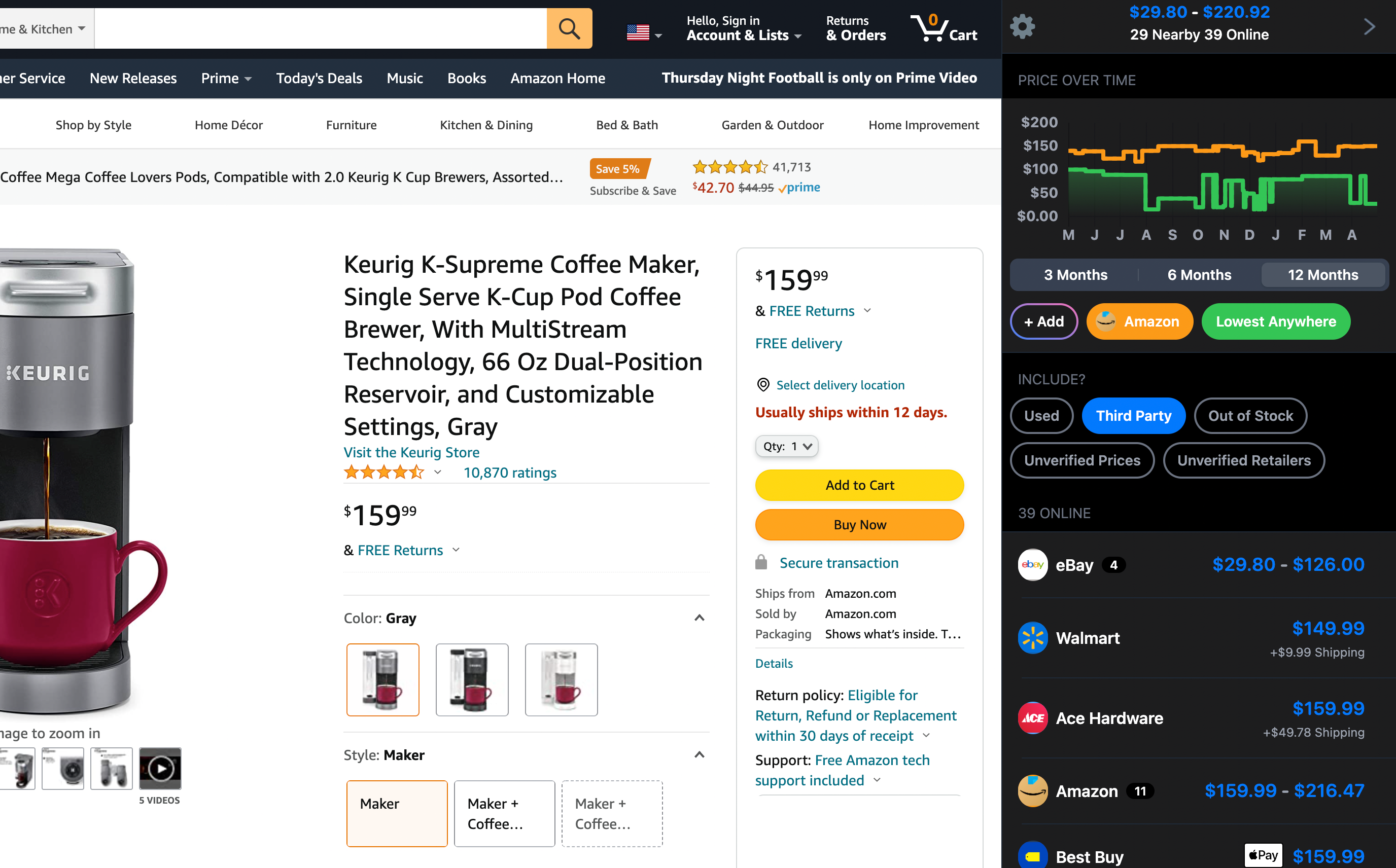Latest Answers for the Product (Page 52)
Deciding between the Sonos Sub Mini and the larger Sonos Sub really comes down to your space, setup, and performance needs. The Sub Mini is a smaller, wireless subwoofer that's perfect if you're short on space but want to enhance your audio. On the other hand, the larger Sonos Sub is for those chasing top-notch audio with room to spare.
Setup and Installation:
Setting up the Sub Mini might be a bit tricky for some folks. It seems like there can be hiccups with the app and pairing up devices.
We've also found that specific routers, like Spectrum, can cause some connection headaches. In such cases, using an Ethernet connection or trying a different router might do the trick.
Another thing to watch out for is the PIN during setup—the small, low-contrast text can be tough to read. If you run into bumps, it might help to have a tech-savvy friend on call since some have found Sonos customer support a bit slow.
Audio Performance:
Once you've got it set up, the Sub Mini impresses with its sound. Our research shows it can pump out powerful, dynamic bass that really amps up music and movies with that classic Sonos audio experience.
Its smaller size means it's great for apartments or condos, fitting nicely without compromising on sound.
Comparing it to the bigger Sonos Sub, the Mini's compact nature makes it a wise choice if you're tight on space. But if you want the fullest bass possible and have the room for it, the larger Sub might be what you're looking for.
Conclusion:
In short, the Sub Mini is a solid option if you're after a compact yet powerful boost to your Sonos setup. Just be ready for a potentially involved setup process.
With a bit of patience and maybe some extra help, you'll soon be enjoying the impressive sound it has to offer.
How long does it take for the Cuisinart WAF-F40 Double Flip Belgian Waffle Maker to heat up?
The Cuisinart WAF-F40 Double Flip Belgian Waffle Maker heats up pretty quickly—our research says it usually takes about 5 minutes to get ready. That's pretty typical for waffle makers, so you won’t have to wait too long before you can start making waffles.
The manufacturer's product description mentions it has helpful signals—a couple of indicator lights and an audible alert—to tell you when it's good to go. So, no need to hover over it, wondering if it’s ready.
If you're worried about cleaning, the plates aren't removable, but they are non-stick. Some folks find cleaning them a bit of a hassle initially, but our research suggests that letting the waffle maker cool a bit and then wiping it with a damp cloth or sponge works pretty well.
Just steer clear of anything too abrasive to keep that non-stick surface intact.
The Roborock S8 does a pretty solid job when it comes to dodging obstacles, thanks to its ReactiveAI 2.0 technology. According to the manufacturer's product description, it maneuvers around your home while avoiding things like furniture, so you won't often find it stuck or causing trouble.
Our research backs this up as well—lots of folks say it handles everyday household objects without a hitch.
Now, about staircases—no worries there! The Roborock S8 is equipped with cliff sensors to ensure it won't take a tumble down the stairs. This feature is pretty popular among users, particularly in homes with multiple levels, since it helps keep the robot safe when cleaning upstairs areas.
So, if you're looking for a vacuum that won't crash into stuff or fall down the stairs, the Roborock S8 seems to be a dependable choice.
So, you're curious about the extruder on the ELEGOO Neptune 3 Max? According to the manufacturer's description, it uses a dual-gear direct drive extruder. This basically means it's built to handle various filaments—like PLA, PETG, ABS, and even the more flexible TPU—with little fuss.
Some neat aspects of this extruder include an adjustable extrusion force and a 3:1 reduction ratio. These help keep things running smoothly by reducing common hiccups like clogs or gear issues.
The direct drive setup means the filament goes straight into the hot end, giving you better control and precision, particularly when working with flexibles like TPU. Compared to Bowden setups, a direct drive sits closer to the nozzle, which really helps with softer materials.
From what we’ve gathered, folks seem pretty pleased with how the extruder performs on the ELEGOO Neptune 3 Max. It tends to make switching between materials quite easy and keeps everything printing steadily.
In a nutshell, whether you're just starting out or already a bit of a print wizard, this dual-gear system is a solid choice. It’s reliable and versatile, handling both standard and exotic materials without much hassle.
The Sonos Sub Mini is a great choice if you're looking to amp up the bass in your Sonos setup. It's got a hefty 250 watts of power, so it's definitely going to make your audio experience richer.
But, like with any tech, there are some connectivity things to keep in mind to make sure it's working perfectly with your other Sonos devices. Most folks connect the Sub Mini wirelessly using Wi-Fi, which makes it blend in seamlessly with other Sonos speakers like the Arc, Beam, and Ray.
Our research shows that Wi-Fi is pretty much everyone's go-to since it makes managing your system through the Sonos app super easy. It's all about convenience and getting that performance edge.
If your Wi-Fi isn't cutting it, there's always the option to go with an Ethernet cable. That's great for a more stable connection. But, just a heads up—Bluetooth isn't an option here. Sonos is sticking with its strategy of keeping everything within its networked audio system, so if you want to hook up something that's Bluetooth-only, you're out of luck.
From what we've seen, the setup process is pretty straightforward, thanks to the Sonos app. It not only makes managing things easier, but it also helps you tweak the audio to fit your room perfectly.
So, if you're already into Sonos gear or thinking of joining the club, using Wi-Fi for the Sub Mini will make sure you get the best sound. Just remember, it's meant to be part of a Sonos family, so make sure your setup is all set, whether you're going wired or chilling with Wi-Fi.
So, from what we've gathered, the Dolphin Sigma Robotic Pool Cleaner does a great job overall, but it doesn't directly connect with smart home systems like Amazon Alexa or Google Assistant.
The Sigma has Wi-Fi, which means you can control it remotely using the MyDolphin Plus app. However, there's no support for using voice commands with digital assistants.
The app itself is pretty handy. You can start and stop cleaning, set up a weekly cleaning schedule, and even steer the cleaner manually with your phone. But, you'll be doing all of this through the app since you can't connect it to voice platforms like Alexa or Google Assistant—something the manufacturer's description backs up.
If being able to use voice control is super important to you, you might want to look into pool cleaners that do offer smart home integration.
But keep in mind, a lot of folks are happy with the Sigma and how it performs, even without that feature. The app's functionality and the cleaner's performance seem to resonate well with pool owners.
In short, if you really need smart home connectivity, you might need to check out other options.
But for many, the Sigma's cleaning skills and the convenience of its app still make it a solid pick among pool owners.
The Roborock S8 doesn’t make too much noise while it’s working. A lot of people find it pretty quiet, especially when you set it to Quiet mode. This is really handy if you're trying to focus on work or catch some sleep while it’s cleaning.
The manufacturer hasn't shared an exact decibel level in the product details, but from what we’ve gathered, its noise level is similar to other high-end robot vacuums. In lower power modes, you can carry on a conversation or watch TV without it being too distracting.
Of course, like most vacuums, when you crank up the power for a more thorough clean, it does get louder. Some folks say it’s more noticeable on those settings, but it’s not overbearing. To give you an idea, it sounds a bit like chatting with a friend, typically around 60-70 decibels.
What’s nice is that it stays relatively quiet without sacrificing its cleaning power. You get to choose between less noise and more suction, depending on what you need at the time.
Overall, the Roborock S8 seems like a good fit if you want a vacuum that’s not too noisy but still keeps your floors clean. If noise is a big deal for you, you might want to check how it compares with similar models to make sure it meets your quiet space needs.
The Dolphin Sigma Robotic Pool Cleaner does a solid job at capturing debris, thanks to its advanced filtration setup.
It's designed to handle in-ground pools up to 50 feet, and it uses dual scrubbing brushes along with strong suction to pick up leaves, dirt, and other debris efficiently.
According to our research, folks generally like how well it tackles debris, both big and small. The filters are meant to snag large leaves and finer particles, making it a pretty versatile option for keeping a pool clean. Many people noticed their pools had a lot less debris after using the Sigma.
However, some have pointed out issues with it getting stuck on raised drain covers. This can be a bit of a headache since it might need a push to get back on track, which obviously affects how well it can clean.
There are some workarounds suggested for this, like adjusting the robot's handle or trying out an extra center brush. So, if your pool has those kinds of features, it might be worth considering these tweaks to get the most out of the Sigma.
In short, if you're looking into the Sigma for its ability to capture debris, it generally does a great job, as long as the conditions are right.
Just keep in mind the layout of your pool and any potential snags it might hit along the way. Overall, its filtration system is a highlight, delivering a good level of cleanliness and making pool maintenance a bit easier.
Hey! If you're having trouble finding some peace and quiet with all the noise around, the LectroFan EVO might be worth checking out. Our research suggests that it's pretty good at drowning out all sorts of background noise, whether you're dealing with loud neighbors, traffic, or even someone snoring nearby.
What's cool about it is the variety of sounds it offers. There are 22 different non-looping sounds, including fan noises, white noise, and ocean sounds, so you won't get that annoying repeat you might experience with other machines.
Something that really stands out is how loud it can get. If you've got a snorer in the house who could easily challenge a chainsaw, this could be a lifesaver. The volume can go high enough to create a barrier, letting you sleep soundly.
As a bonus, it's super simple to use. Even if you're half-asleep, the controls are easy to navigate: just a volume dial, sound choice buttons, and a timer if you'd like it to shut off automatically.
Its compact size and light weight also make it travel-friendly, so you can take it with you wherever you go and enjoy the same peace.
In a nutshell, the LectroFan EVO seems like a solid option for creating your own private sound space, whether you're at home or on the road. From what we've found, it can really help turn restless nights into restful ones.
The ELEGOO Neptune 3 Max has a pretty impressive build volume. According to the manufacturer's specifications, it has a generous size—though we don't have the exact dimensions here. With this kind of space, you can take on bigger projects and get really detailed with your prints.
Aside from its size, this printer is quite versatile with the materials it can handle, mainly because of its dual gear direct drive extruder. That means you can use different filaments like PLA, PETG, ABS, and TPU without much fuss.
From what we've gathered, folks who've tried it appreciate this flexibility. It seems like there are fewer issues with things like nozzle clogs and gear problems, which is always a plus.
The Neptune 3 Max also comes with a heated bed and a PEI magnetic platform, which helps a lot with print adhesion and minimizes warping—especially handy when you're using trickier materials like ABS. Our research shows that people generally find these features quite reliable for various material types.
But, a heads up—getting the most out of this printer means paying close attention to setting it up right. Things like tweaking nozzle and bed temperatures for whatever filament you're using and making sure the bed's leveled are crucial. Properly adjusting the Z-axis height is also important when you swap materials to keep the print quality up.
In a nutshell, if you're looking for a 3D printer with ample space and versatility, the ELEGOO Neptune 3 Max is worth considering. It seems to work well whether you're just starting out or have been printing for a while, especially with its adjustable features that help produce great prints across different materials.
 Download ShopSavvy App
Download ShopSavvy AppCompare prices for anything in real-time, set price alerts, watch for deals by keyword, and much more
 Install ShopSavvy Browser Extension
Install ShopSavvy Browser ExtensionCompare and track prices automatically while you shop online at thousands of websites.
Footer 1
Published
Subscribe for Updates
Get the latest news, and updates on ShopSavvy. You'll be glad you did!





